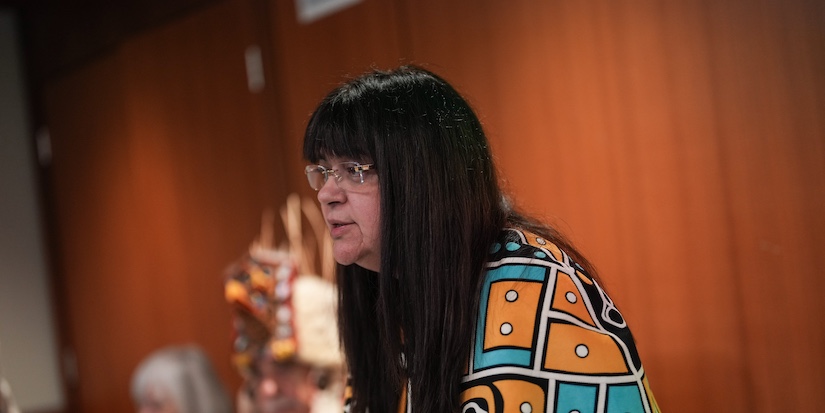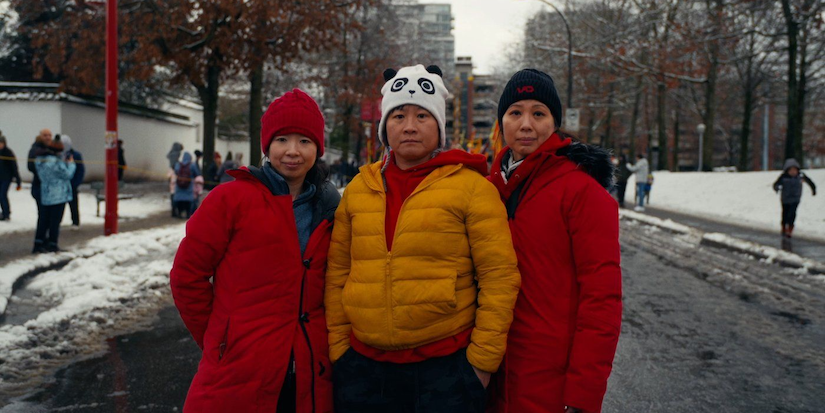Latest News
Despite arthritis, funeral director is making it work
Published 12:57 PDT, Thu October 12, 2017
It had been a tough year for Steven Colón.
First his wife had a heart attack. She needed
a lot of help, but at least Colón could rely on his career.
Then he was diagnosed with psoriatic
arthritis, a severe autoimmune disease that attacks his joints, skin and
digestive tract. At that point, Colón started to worry about the future.
Could he continue to support his family at a
job he loved, as a funeral director?
And he was right to worry, according to Dr. Diane
Lacaille of Arthritis Research Canada (ARC), “Arthritis and musculoskeletal
conditions are the number one cause people have to quit working in Canada, so
it’s very costly.”
Thankfully, ARC offered hope for Colón, with
an experimental program called Making It Work.
“Usually work falls in between the cracks,”
Lacaille says. “Health care professionals, don’t ask about work.”
Not long after his diagnosis, Colón saw a
client at a funeral with bent, withered hands and thought, is that what’s in
store for me?
The shock of a life-altering diagnosis often
breeds a feeling of loss of control.
ARC’s online Making It Work program, headed
by Lacaille, looks to give that sense of control back.
“We’re empowering people to make the changes
they can to stay at work, while also thinking ahead of time to what problems
may come up. It’s about what changes you can make so your work is better
adapted to your arthritis,” she says.
Making It Work consists of a number of online
modules. Colón worked through each section over a two-week period.
At the end of each module, Colón participated
in an online group meeting with other arthritis patients in the program. Each
meeting was facilitated by a vocational counsellor.
“They
are like a sounding board. I would bounce ideas and they would provide me with
feedback. And a lot of it was validation as well,” Colón says.
One of the program’s modules helped Colón
examine the role fatigue plays in his life, and how to manage it.
“The program helped me realize and confirm
what I felt and helped me find approaches how to deal with it. I learned to do
things earlier in the day, in my particular case,” he says.
Other program modules look at such things as
when and how to tell others that you have arthritis and what adaptations you
will need at work.
Making It Work also looked at the physical
demands and Colón’s needs on the job to see what can be altered to keep his
joints as healthy as possible.
Stress at work, how to identify and manage
causes, are other topics in the program, as are understanding your medications
and knowing your rights as an employee with arthritis.
“Making It Work taught me about medications
and how to talk with my doctor. Luckily the program provided me with everything
I needed at the time. They helped me, along with my doctor, knowing what I had,
how it affected my system and what approach I could take. I learned how to let
my employers know this is what I have,” says Colón. “The Making It Work program
helped shape my thoughts, what I wanted to say, and how to say it”
The program also looks at the ergonomics, the
physical situation and the required motions, in a job. Each participant needs
different alterations.
“I sent in pictures the way I would sit in my
office,” he says. “I have picture of how I would lift a casket and they
provided me with ideas on correct seating at my desk and how to lift caskets
safely.”
“The program is not designed to keep people
working at all costs but it is designed to find ways to keep people, who want
to work, able to do their jobs now and to keep doing their jobs in the future,”
says Lacaille.
Colón says that, working in a job that
requires care and kindness, he appreciated all the more the empathy of each
person he encountered at ARC.
“The Making It Work program helped me
navigate the waters, putting things in a way that not only I could understand,
but in a way my employers at the funeral home could understand too,” he says.
Now, equipped with a greater sense of
control, and with his disease well-managed by medication, Colón says the future
looks brighter for him and for other arthritis patients.
“The first thing I would say is don’t give
up. Find a good rheumatologist. Learn about the illness you have and if the
program is available, join the program right away because it’s going to answer
almost all the questions you’re going to have about your illness and provide
the support you're going to need to stay employed and supporting your family.”
Making It Work it is still in its research
phase.
ARC hopes to release the program to wider use
this coming year so is taking names for the wait list. But, for Colón, the
results are in. His future as a funeral director looks more secure thanks to
his physician, modern medicine and what he’s learned through Making It Work.
For more information or to put your name on
the wait list Makingitwork@arthritisresearch.ca






























